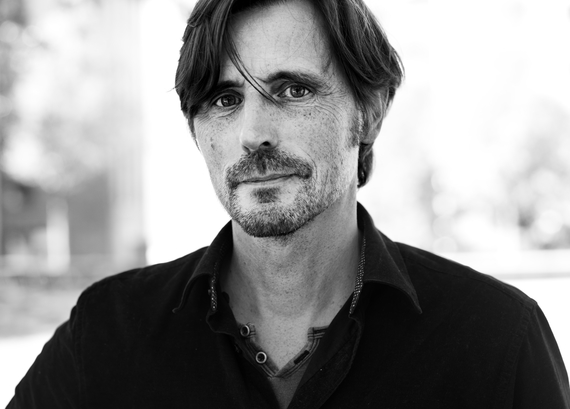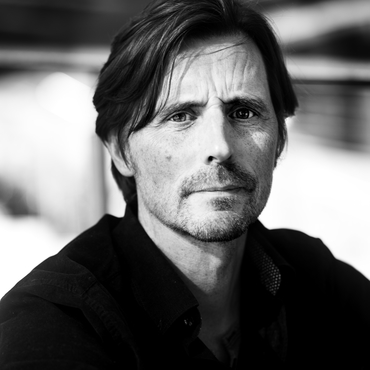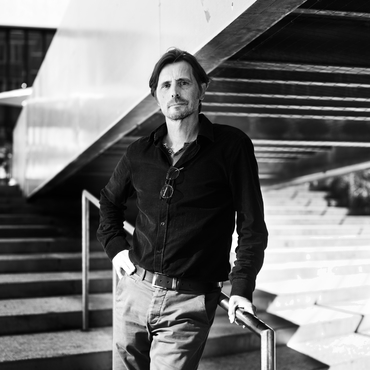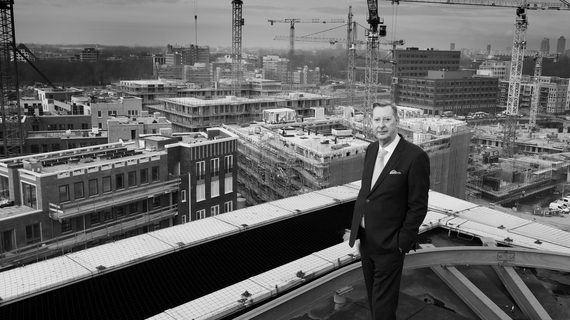
“There's nothing wrong with compromising”
According to Peter Köster ‘The future is in the hands of small, self-sufficient communities’. Despite the rush to generate more housing, and despite increasing mobility and the aversion of investors to change, Köster expects that the contribution of residents to their living environment will continue to grow, and the way to successfully give voice to their involvement is: communication.
Around the table
Hamburg landscape architect Peter Köster, is a man who believes in the power of dialogue: ‘Designing and building is becoming more and more a process of communication and negotiation. There is nothing wrong with compromising. Since ancient times, man has survived thanks to his ability to share, to consult and to find solutions together. Consequently, I view the landscape architect as a moderator.’
Finding the right solution, supported by investors, developers, architects, landscape architects, administrators and residents - i.e. consensus - that's the key: ‘This is why I think that landscape architects, so far as our public spaces are concerned, must be people who ensure that everyone is heard in an atmosphere of trust, they must have an eye for all the different moods, and be able to reconcile all this information into the right format’.

Your habitat is your life
That's not the same as designing a city park from a drawing board! ‘For sure’, Köster agrees ‘but I am convinced that a living environment developed in this way, based on a shared basic idea, is much more sustainable than something that is imposed from above’.
The public also wants to be able to influence their living environment. This is a trend that, at first glance, seems to be at odds with the fact that we are becoming increasingly mobile, that the world is, as it were, at our feet. ‘I think that this is precisely why people need security, a small self-sufficient community that is transparent, where we can see what is happening, how we are building, what is happening to waste, to greenery in the centre of the city. Everywhere else in the world, we are just passing through. We're constantly on the move, but don't really participate in life there. We can only bond in a small, compact habitat. Wohnort ist Lebensort. It is a nostalgia for the qualitative way of life.’
I am a Gärtner, the public space is my garden, my responsibility. It’ll be my life’s work.
Back to 'gärtner'
Naturally, Köster also realises that investors are not immediately enthused by this vision of the future. At the same time, one need not exclude the other, as shown, for example, by the fact that Hamburg will construct 2.3 kilometres of the motorway underground (starting in 2025). This means better connections within the city, more greenery and also extra housing. The ideal solution for the required density, and an improvement in the city's quality of life.

It's wonderful when seemingly conflicting interests can come together in this way. But, there is actually no choice: ‘We will have to focus our efforts in the construction sector entirely on living harmoniously with plants and animals, otherwise we will have no hope of survival. Climate change, overexploitation of raw materials, our existence is finite. Nature, the biosphere in which we live, does not care about what happens to humans, we are passers-by on this planet. That is why the entire construction sector must accept responsibility for what has been, and is being, built for sustainable living conditions in the residential environment. I am a Gärtner, the public space is my garden, my responsibility. It’ll be my life’s work.’


